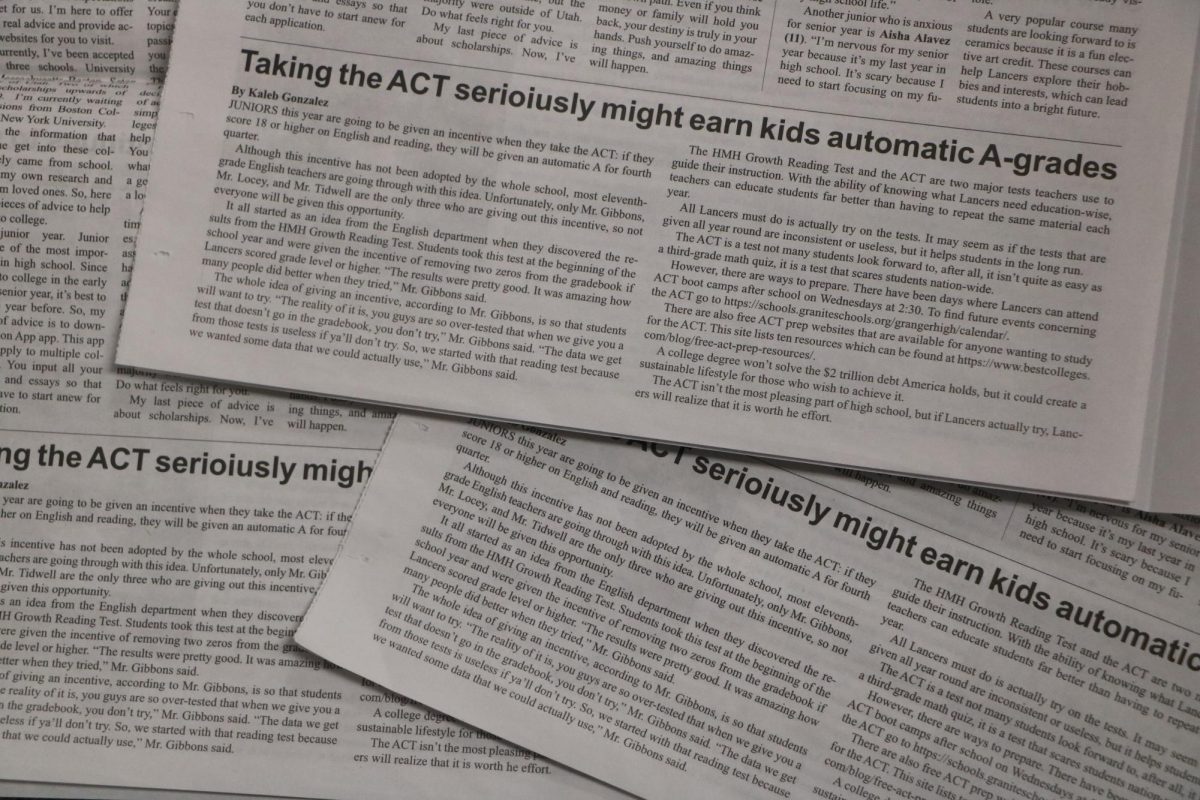LAST MONTH, the Tri-Color Times published an article titled “Taking the ACT seriously might earn kids automatic A-grades.” In this article, it was discussed that some English teachers are planning on using a new system where Juniors who score an 18 or higher on the English and reading categories earn get an automatic A in their English classes.
Tri-Color Times reporter Kaleb Gonzalez stated that it was “unfortunate” that not all Juniors get this “opportunity.” While he may not have meant this to be a bash on teachers who aren’t using this policy, that was how it was perceived by teachers who think that the first article was biased. In the article, teachers who were trying this new policy were being praised, while teachers against this policy weren’t interviewed. This left unexamined the argument that giving students automatic A’s is unfair to the students and will cause fourth quarter problems.
Ms. Green, a language arts teacher, will not be using this system for her juniors. “A huge misconception is that the test is what matters. A student’s education is what matters,” Green said. Another thing she mentioned is that the ACT doesn’t test all skills. It doesn’t test creativity, how kids think through things, speech, listening, or writing skills, and those are the things that really lead to college and career readiness.
One issue she mentioned is Granger’s attendance and motivation — if students get an automatic A, they might not attend class anymore. “Granger already has a huge attendance problem, and giving students one more reason not to attend class could rob them of an education,” Green said.
Many teachers agree that the automatic grading based on ACT scores is also unfair. “I see it as unfair in a lot of ways. It’s unfair for students who are ESL or the special education students who don’t have the same opportunity and ability as other students to get a good score,” Green said.
“Some students couldn’t get an 18 if they tried because they simply can’t get to school. But others could get an 18 easily. To be honest, an 18 is a pretty low score, and to get an 18 and automatically get an A blows my mind,” she said.
Instead of offering an automatic grade based on ACT scores, there are other ways to motivate students to do well on the ACT. “The ACT does give you the opportunity to get scholarships, and it gives you better opportunities to get into college. There are a lot of skills that cannot be tested on the ACT test, so giving students the idea that getting an 18 or higher is enough preparation, could leave them feeling very unprepared for college,” Green said.
Some teachers who have opted for this policy are already trying to back out of it. “Two of the three teachers I have talked to that are using this policy, regret it already. They’ve had a few students try to transfer into their classes, so they don’t have to go to class after the ACT and are now trying to put things into place so that it isn’t an automatic A because they have realized it’s not going to work,” Green said.
Some students must try hard to get an 18, while others could get an 18 in their sleep. “Getting an 18 is not a success. If we are trying to prepare students to be educated, a test score isn’t an education and it takes away the fun of school, the literacy, and writing skills,” Green said. “This policy worries me. Teachers will start teaching to cater toward a test rather than focusing on students gaining an education, participating, and being involved. The growth you have had as a student isn’t just a number, and implementing this policy would rob students of a good education,” Ms. Green said.








